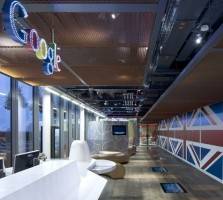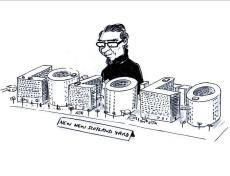January 2, 2015
CIPD claims 2015 should be a ‘rollover year’ for workplace productivity
 The UK labour market will continue to expand at a strong rate in 2015 but there are unresolved issues relating to levels of pay and how best to increase workplace productivity to drive further growth, according to Mark Beatson, chief economist for the Chartered Institute of Personnel and Development (CIPD) in a new report. While the report argues that the ongoing economic recovery and improvements in the labour market are good news for jobseekers and good news for businesses, it also considers it unlikely that we’ll see any real increase in wage growth until 2016. The author also warns that the UK’s steady growth remains vulnerable to developments in Europe and that the UK’s ‘workplace productivity puzzle’ is an urgent issue for policy makers and businesses to address in order to sustain growth.
The UK labour market will continue to expand at a strong rate in 2015 but there are unresolved issues relating to levels of pay and how best to increase workplace productivity to drive further growth, according to Mark Beatson, chief economist for the Chartered Institute of Personnel and Development (CIPD) in a new report. While the report argues that the ongoing economic recovery and improvements in the labour market are good news for jobseekers and good news for businesses, it also considers it unlikely that we’ll see any real increase in wage growth until 2016. The author also warns that the UK’s steady growth remains vulnerable to developments in Europe and that the UK’s ‘workplace productivity puzzle’ is an urgent issue for policy makers and businesses to address in order to sustain growth.





 A report published at the end of December
A report published at the end of December BBC Wales has exchanged contracts with the developer of its new 150,000 sq. ft headquarters in the centre of Cardiff. Although still subject to final planning consent and the approval of BBC executives, the building is an anchor site in the Foster + Partners masterplanned Central Square regeneration project and work is confidently expected to begin in the middle of 2015 for completion in 2017 with full occupancy expected the following year. The new building will be home to some 1,000 staff and has been targeted to achieve a BREEAM excellent rating. Developers Rightacres expect the Central Square mixed use project to provide around 1 million sq. ft of office, residential and retail space, creating one of Wales’ largest property developments and regeneration schemes in the heart of Cardiff on the site of the current bus station.
BBC Wales has exchanged contracts with the developer of its new 150,000 sq. ft headquarters in the centre of Cardiff. Although still subject to final planning consent and the approval of BBC executives, the building is an anchor site in the Foster + Partners masterplanned Central Square regeneration project and work is confidently expected to begin in the middle of 2015 for completion in 2017 with full occupancy expected the following year. The new building will be home to some 1,000 staff and has been targeted to achieve a BREEAM excellent rating. Developers Rightacres expect the Central Square mixed use project to provide around 1 million sq. ft of office, residential and retail space, creating one of Wales’ largest property developments and regeneration schemes in the heart of Cardiff on the site of the current bus station.















December 17, 2014
Flexible working is best built on the foundations of a great office
by Charles Marks • Comment, Flexible working, Workplace design
(more…)